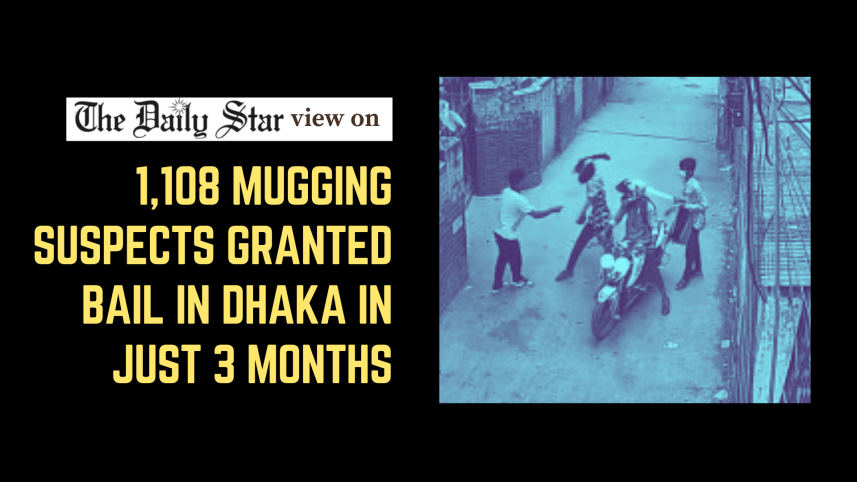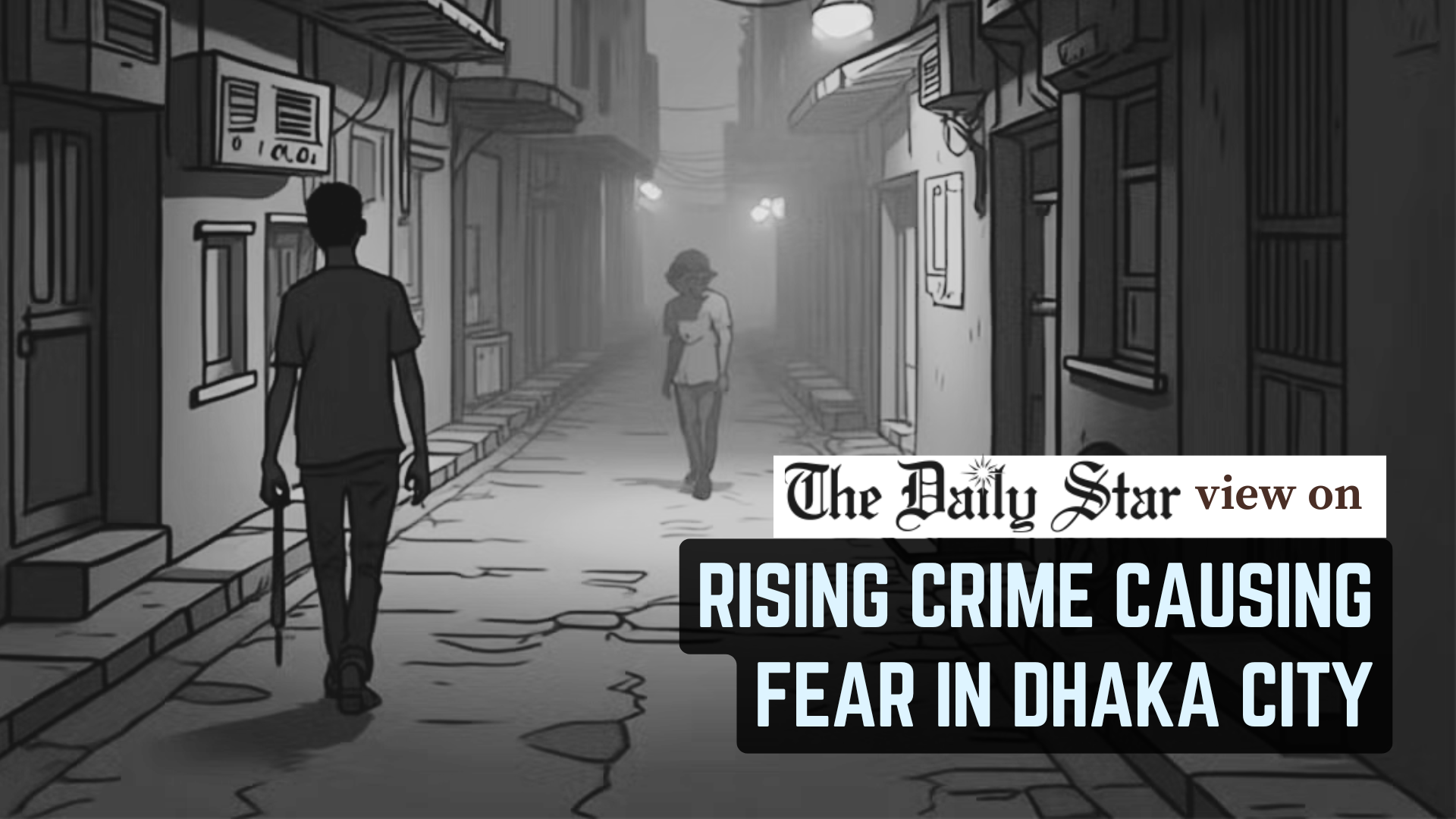Why are so many mugging suspects getting bail?

We are deeply concerned about the trend of suspected criminals being released on bail, raising questions about the effectiveness of police investigations, prosecution, and the overall justice system. According to police data cited by Prothom Alo, 1,108 mugging suspects secured bail in just three months in Dhaka. Among them were accused caught red-handed, those arrested after their names surfaced during investigations, those apprehended while preparing for mugging, and even some whose names appeared in the final charge sheets. At a time when mugging has become a constant source of insecurity for many residents, the release of so many suspected criminals comes as a double blow, as freed suspects often return to crime.
This forces the police to chase the same criminals repeatedly, thus not only draining their resources but also emboldening criminals. In the months following the uprising, there has been a surge in crimes amid the security vacuum left in its wake. In particular, mugging, robberies, and violent attacks were frequently reported, with viral videos of such incidents often causing widespread alarm. While subsequent months have seen greater efforts by law enforcement agencies, crimes, especially violent crimes, still persist. In Dhaka, according to court sources, seven people were killed in mugging-related incidents alone between last August and March. Mugging suspects being granted bail only exacerbates the situation.
The question is, why is this happening? Part of the problem lies in weak case-building. Cases are sometimes filed under less severe sections of law, making bail easier. In some cases, suspects are arrested under old cases, giving defence lawyers room to argue for release. Case investigations are also often either weak or slow, with charge sheets in mugging cases taking as much as a year to be filed on average. Moreover, prosecutors often fail to present strong arguments against bail. Even magistrates have pointed out that mugging case files often lack detailed accounts, paving the way for bail. In other words, negligence and procedural lapses on the part of both police and prosecutors are responsible for this situation.
While bail is a right and cannot be denied if a case for it exists, the challenge is to ensure that anyone who is a threat to society does not come out by exploiting loopholes or without supervision. Experts say that correct drafting of charges under the appropriate legal sections, timely filing of charge sheets, and greater efforts from prosecutors can make a difference. We, therefore, urge the authorities to undertake necessary measures in this regard. They must prevent accused offenders from securing undeserved bail or re-engaging in crimes.



 For all latest news, follow The Daily Star's Google News channel.
For all latest news, follow The Daily Star's Google News channel. 


Comments